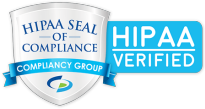Lower Burden with Outsource Prior Authorization
Dealing with prior authorization is a necessary part of revenue cycle management. Prior authorization, sometimes referred to as a “pre-authorization,” is a requirement from the health insurance company that the provider obtains approval from the patient’s plan before it will cover the costs of a specific medicine, medical device or procedure.
Many times, this involves a healthcare provider completing a Prior authorization form to illustrate to the insurance company why a specific medicine, medical device or procedure that are prescribed is medically necessary. Then, the insurance company will have requirements that need to be met before it will agree to cover the specific item or treatment.
Why is Prior Authorization Required?
There are several reasons a prior authorization is required. Every health insurance company uses a prior authorization requirement as a way to keep healthcare costs in check. This process will make sure that the service or drug that the physician is requesting is truly medically necessary.
Requiring prior authorizations will also ensure that the service isn’t being duplicated. This is a concern when multiple specialists are involved with a single patient. And, this determines if an ongoing or recurrent service is actually helping the patient.
See also: FREE Prior Authorization Ebook
As a result, a pre-authorization in healthcare is a way to ration healthcare. Medical insurance providers are rationing paid access to expensive drugs and services, making sure the only people who get these drugs or services are the people for whom the drug or service is appropriate.
How Long Do Prior Authorizations Take?
A prior authorization can take days to process. However, being proactive and maintaining a very detailed communication log can help to reduce the amount of time a prior authorization takes. Also, keeping some sort of alert/calendar so that you know when the first request was sent and following a very strict follow-up schedule will help you avoid the dreaded delay that is typically caused by prior authorizations. Below are a few tips to reduce the time spent processing prior authorizations:
- Start the process early.
- Know the key dates for when your information needs to be submitted.
- Send a follow-up fax or phone call if the requested authorization has not been returned within 5 business days.
- Don’t hesitate to ask if you need a short term process.
- Have your patient be involved in the process to expedite the approval.
What is Prior Authorization in Medical Billing?
Prior authorization refers to the process of managing the authorization or agreement given to the payer for approval about a medical billing service, procedural or drug prescription. A payer may give its authorization for service and assigns an authorization number that needs to be included on the claim during the submission for payment. In order to have a smooth flow in this process, ensuring the correct CPT code is needed.
How To Improve The Prior Authorization Process?
- Electronic System
- The current process is too manual and involves prescribers, payers, pharmacists, and patients in a cumbersome flow of information that may result in delays in treatment and dissatisfaction for all. As a result, many are implementing electronic prior authorization solutions to address common issues with the approvals process. Electronic Prior Authorization integrates directly with electronic health records (EHRs), enabling healthcare professionals to easily obtain prior authorizations in real time at the point of care. This also eliminates time-consuming paper forms, faxes, and phone calls.
- Be familiar with an insurer's policy
- To reduce patient delay, it is vital that physicians check prior authorization requirements before providing services or sending prescriptions to the pharmacy. This will also prevent medical services claim denials and lost payments due to unmet prior authorization requirements.
- For frequently performed medical procedures and services, a practice often knows from past experience whether prior authorization is required. However, even if you are familiar with prior authorization requirements for a particular service, it is best to monitor health plan provider newsletters, bulletins, and websites for any updates, as health plans frequently change their prior authorizations programs.
- Investing the time to determine prior authorization requirements before a service is provided is well worth it, as most health plans will not pay for services if a prior authorization was not appropriately requested in advance of treatment.
- Establish a protocol
- Prior authorizations almost always require the submission of documentation to support medical necessity and indicate any prior care that has been provided to the patient. Having concise, complete information readily available in the medical records speeds up the completion of a prior authorization. It also minimizes physicians involvement in the prior authorization, as other staff can retrieve the needed information from the medical record and submit it to the health plan on the physician's behalf. Finally, quality documentation prevents follow-up patient contact or additional appointments in order to obtain the information needed to fulfill prior authorization requirements.
- Employ a centralized system
- Centralizing the prior authorization responsibility can often create greater efficiencies, address the lack of consistency, and ensure a more reliable and stable approach. Outsourcing the prior authorization process to a prior authorization specialist will enable a more efficient process and develop relationships with payers.
- Regularly follow-up prior authorization approval
- Dated and time-stamped prior authorization submission materials, along with a formalized follow-up process, ensure that submitted prior authorization requests don’t fall through the cracks. Many practices find “tickler” files helpful in triggering follow-up with health plans regarding the delayed responses.
How to Speed Up Prior Authorization?
Here’s how you can speed up your processes easily:
- Check on Accuracy. Always check first the necessary prior authorization requirements before rendering services or sending prescriptions to the pharmacy. This is to make sure that there won't be any delays in filling prescriptions, denials of claims, and lost payments due to lacking prior authorization requirements.
- Standardize to optimize time on the PA process. Setting a standard protocol to consistently record data needed for prior authorization helps to minimize the usual time spent on the authorization.
- Constant follow-ups. Make sure to make a follow up regularly on the prior authorization requests too to prevent delays.
- Appeal Preparation. Prepare an appeal with supporting medical records beforehand in case the prior authorization will be denied.
Conclusion
The process of obtaining and maintaining prior authorizations is vital to the success of any medical practice. Overall, the prior authorization process impacts almost every aspect of the revenue cycle and operations of your medical practice.
Resolve your administrative burden by partnering with a proficient prior authorization outsourcing company. Outsourcing your prior authorization needs will optimize your profit levels, improve claims processing, and increase on-time payments.
At DrCatalyst, we specialize in next-generation revenue cycle management, which includes prior authorizations, to help medical practices increase their cash flow and modernize their medical billing processes. To learn how we can help, schedule an appointment now.
Useful Links
DrCatalyst | All Rights Reserved.













